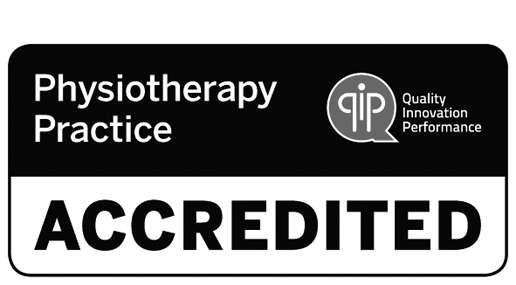
An Irritable Bowel Is A Pain In The Gut!
By Dr Jaci Barrett
Irritable bowel syndrome (IBS) is the most common gastrointestinal (gut) disorder. Symptoms of bloating, abdominal pain and diarrhoea or constipation impact your daily life and make you miss school, work and fun social activities.
How Is IBS Managed?
There was little help for people with IBS 10+ years ago. The medical profession had a negative mindset about the condition, stating it was stress related and not much could be done to provide relief. As graduate dietitians in the early 00’s we were instructed to advise our patients that they just needed to eat more fibre – with no relief of symptoms as a result. It was frustrating for both patient and clinician.
Over my career in dietetics I have been lucky enough to be heavily involved in research into IBS and diet. Both patients and dietitians knew that diet was a factor in IBS symptoms. We found that some specific carbohydrates in certain foods were not well absorbed by the gut, and also could be fermented by intestinal bacteria. These carbohydrates led to a worsening of IBS symptoms. And so, at Monash University in Box Hill Hospital, the Low FODMAP Diet was born.
What Are FODMAPs?
FODMAPs are different types of carbohydrates including lactose, fructose, fructo-oligosaccharides, galacto-oligosaccharides and polyols. Foods with richest FODMAP content are listed below (Note: the list is not exhaustive, but gives an idea of the most common symptom triggers).
| Table 1. Common IBS trigger foods rich in FODMAPs | |
|---|---|
| Fruit | Apples, pears, watermelon, mango |
| Vegetables | Sugar snap peas, asparagus, artichokes, garlic, onion, leek, spring onion |
| Legumes/nuts | Baked beans, red kidney beans, cannellini beans, cashews, pistachios |
| Dairy | Milk, condensed milk, ice cream, custard, ricotta cheese, cottage cheese |
| Grains | Rye bread, white bread, wholemeal bread, multigrain bread, wheat-based cereals, pasta |
A diet low in FODMAPs is now recognised as the most successful therapy for IBS, as long as it is followed under the direction of an experienced dietitian, starting with excluding certain foods, then re-introducing them, and finally long term diet planning.
FODMAPs actually have effects on the gut that suggest they are very good for us; they promote the growth of beneficial bacteria. For that reason, a strict low FODMAP diet for life is not recommended. A dietitian guided re-introduction of FODMAPs is essential in order to establish a long term diet that manages symptoms whilst also promoting gut health.
What’s The Latest In This Space?
Low FODMAP diet research continues around the world to test out the benefit of the diet in different populations of people with IBS. Success is always seen in 50-85%, with dietitian involvement increasing the benefit.
Alongside symptoms, recent studies have demonstrated an improvement in quality of life for IBS patients following a low FODMAP diet. For those that don’t respond with adequate symptom relief, there are other dietary therapies to trial and we can also consider whether other health professionals should become involved, e.g. pelvic floor physiotherapist or gut directed psychologist.
What About Breath Testing?
Breath tests were initially used to detect poor absorption of individual FODMAPs so that the diet could be tailored to each person and made less restrictive. However, research has demonstrated that breath test results do not determine whether a particular carbohydrate is a symptom trigger or not (with the exception of lactose). Until this research becomes more widely known, health professionals will continue referring for breath testing, which unfortunately is costly and not beneficial.
What Should You Do If You Suspect You Have IBS?
First and foremost, do not change your diet if you believe you have IBS and have not yet discussed this with your GP. The symptoms of IBS are also symptoms of several other conditions that need to be ruled out before you alter your diet. Changing your diet can impact the accuracy of an alternative diagnosis. After discussing your symptoms with your GP and/or Gastroenterologist and a diagnosis of IBS is made, it is highly recommended that you see an experienced Gastrointestinal Dietitian.
Team Approach To IBS Management
We will often work with other health professionals to optimise results, including GP’s, Gastroenterologists, gut directed Psychologists, and Pelvic Floor Physiotherapists. A Pelvic Floor Physiotherapist can help when a patient has bowel incontinence, difficulty emptying their bowels, or painful bowel emptying. The pelvic floor muscles play an important role in bowel emptying and bowel control, and normalising function of these muscles is vital.
Our team at Diet Solutions are experts in IBS management, all with exceptional knowledge to assess, educate and individualise diet. We will consider usual diet, symptom type/frequency/severity and medical history in order to establish an individualised nutrition plan for you. Our aim is to provide sound advice to limit restrictions on your diet whilst ensuring you eat comfortably, without symptoms, and include foods that benefit your overall health.
Dr Jaci Barrett is an Accredited Practicing Dietitian specialising in gastrointestinal disorders and food sensitivities. She is the director of Diet Solutions and also an affiliate member of the Monash University FODMAP Research Team where she has previously undertaken her PhD and post-doctoral student supervision. More recently, Jaci has had a role as Lead Dietitian and Co-Founder of the new food intolerance/allergy smartphone application due for release in early 2020, TLRT (pronounced Tolerate), which aims to help people with dietary restrictions dine out safely.
February 2020




